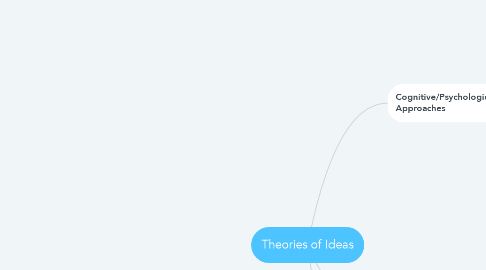
1. Cognitive/Psychological Approaches
1.1. Psychology of Leaders
1.1.1. Elizabeth Saunders - Transformative Choices: leaders and the Origins of Intervention Strategies
1.1.1.1. Summary: Leadership psychology influences extent that great powers intervene in other countries based on whether they believe domestic institutions are to blame (transformative) or not (non-transformative). Shapes cost-benefit analysis and allocation of scarce resources.
1.1.1.2. Connections: Psychological approach expanding on role of causal beliefs
1.1.1.3. Evidence: Comparative analysis of JFK and Lyndon Johnson in Vietnam
1.1.1.4. Elizabeth Saunders - Transformative Choices: leaders and the Origins of Intervention Strategies
1.1.2. Keren Yarhi-Milo - Who Fights for Reputation: The Psychology of Leaders in International Conflict
1.1.2.1. Summary: In moments of crisis, role for authority at the highest level. In those moments, psychology of leaders matter. Reputation for resolve and self-monitoring behavior shapes willingness to fight.
1.1.2.2. Connections: Psychological approach building on deterrence literature and crisis bargaining
1.1.2.3. Evidence: Profiling US leaders + experimental cross-national surveys
1.2. Emotional Belief
2. Modified Rationalist Approaches
2.1. Prospect Theory
2.1.1. Janice Stein - Calculation, Miscalculation, and Conventional Deterrence: The view from Jerusalem
2.1.1.1. Summary: Over-reliance on raw indicators and past experience can lead to improperly inferring intentions from capabilities (or balance of war) and deterrence failure.
2.1.1.2. Connections: Evidence for prospect theory, availability bias, domain of losses/gains
2.1.1.3. Evidence: Israel/Egypt relations pre Yom Kippur War
2.2. Ideas with Causal Weight
3. Discursive/Reflectivist Approaches
3.1. Scientific discourse
3.1.1. Karen Liftin -Ozone Discourse
3.1.1.1. Summary: Analyzing the role of knowledge as power, how it constitutes interests. Science as process of legitimizing politics - policy dependent on expertise of others. Scientific discourse empowering or disciplining
3.1.1.2. Connections: Post-Structuralist critique of realist/rationalist exogenizing of interest formation
3.1.1.3. Evidence: Montreal Protocol

